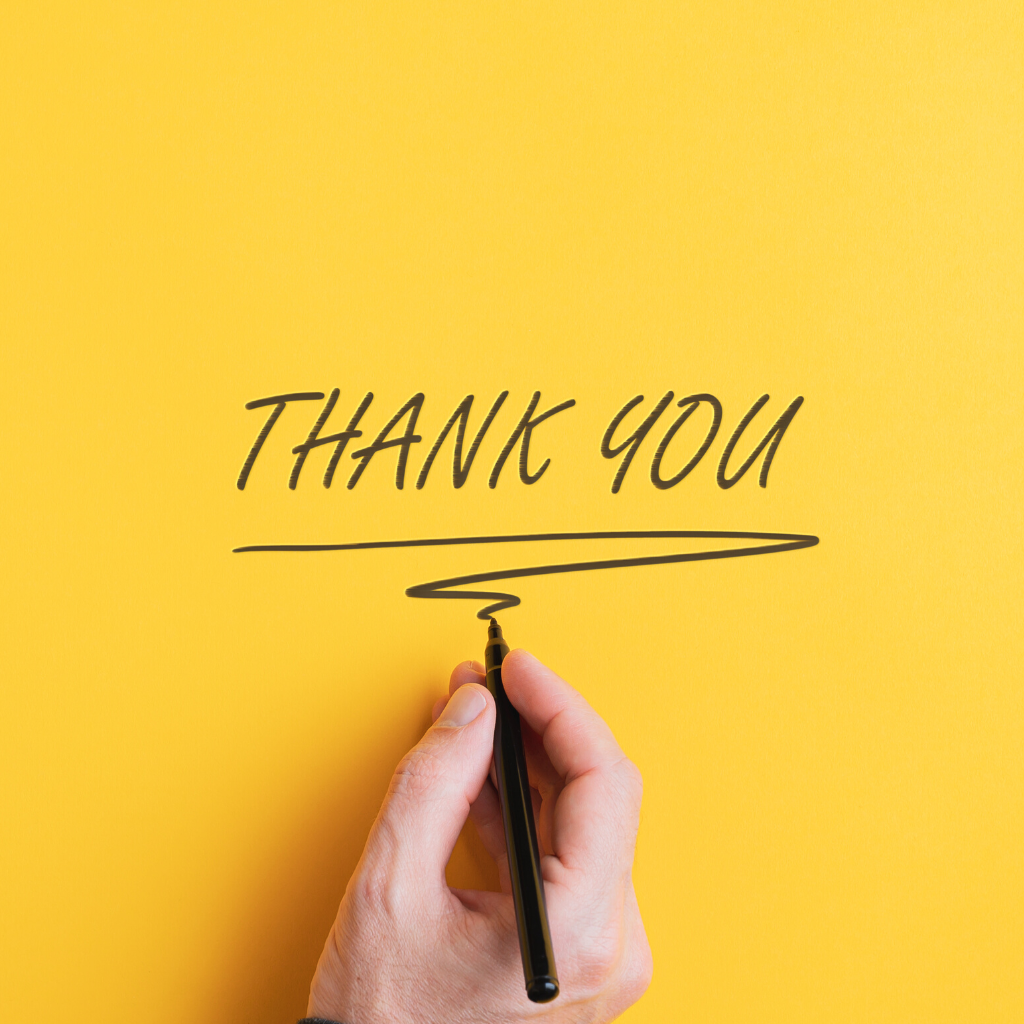Ask for a timeline and for follow-up contact information
In the rush of adrenaline you experience after an interview, be sure to remember to get the contact information for follow-up. This can be as easy as asking for a business card at the beginning or end of an interview, or asking for spelling of names, contact info, and preferred method of contact during your time to ask questions at the end of an interview. Also be sure to ask them about their next steps and timeline for hiring for the position. This will give you an idea of a timeframe to perform your follow-up, or when and if you can expect to hear from them with their decision depending on their process.
Thank them for their time
At the end of an interview, be sure to tell the interviewer(s) that you appreciate their time. Recruitment processes can be long and difficult on both sides of the table. Show appreciation by not going on too long in your answers and by remembering to thank them and shake their hand at the end of the interview.
Send thanks
If the timeline is too brief for traditional mail, or if the recruiter expressed that email is their preferred method of contact, send a brief email thanking them for their time. Be sure to include a note to help them remember your conversation with them, and a brief note of your interest and excitement about the role or company. Keep it short and genuine. If you can, mail a thank you card instead.
Bonus Tip: Keep stamps and thank you cards handy for the day of your interview so you can send them immediately afterwards.
Do any next steps mentioned in the interview
Some employers will ask you to do follow-up activities after their interview. This could be anything from a personality profile, research, completing a part of the application process, to a writing assignment. Be sure to follow-up with this next step quickly and completely.
Follow-up using their preferred method of contact
Whether an employer prefers you contact them by email, phone, or web contact form, reach out to them at the appropriate time, to let them know of your continued interest and if you have any additional questions. If you remembered to ask them about their timeline, use the information they told you to gauge when will be best to perform this follow-up. For example, if the employer said they expect to wrap up interviews with candidates by the end of the week, you might want to reach out to them at the beginning of the following week. You can take the guesswork out of the equation by asking the employer when a good time to follow-up with them would be, respecting their process if they express that they will reach out to you and prefer not to be contacted for follow-up.
Bonus Tip: Avoid calling the recruiter without having a specific talking point or question. Using phrases like “check-in” or “touch base” are vague and cliche. Instead, give them a specific and brief statement or question. For example, let them know you wanted to express that you are still interested in the position and were calling to:
- Ask a follow-up question about the role (check your notes from the interview and research about the company to establish a good follow-up question)
- See if they had any more questions for you
- To thank them again for the chance to learn more about the position and interview with them.
Keep applying for jobs and going to interviews
It can be easy to lose momentum after an interview, but keep active in your search until you accept a job. Set yourself a target number of jobs to apply to daily, keep a record of your applications, and set yourself reminders to follow-up with contacts. By staying active in your search, you’ll increase the odds of a positive result.
Bonus Tip: If you are in active consideration for another role when you accept a job, remember to notify the other potential employer as soon as possible that you have accepted another position.

